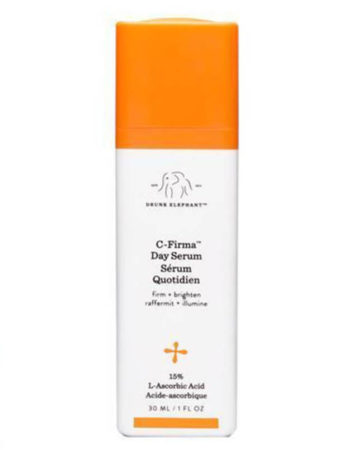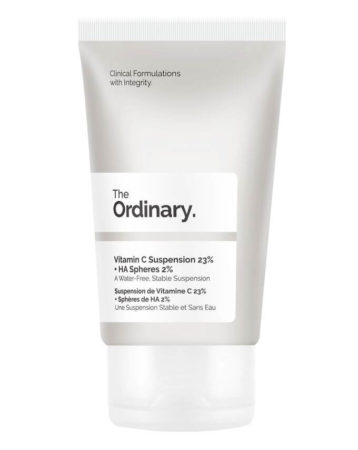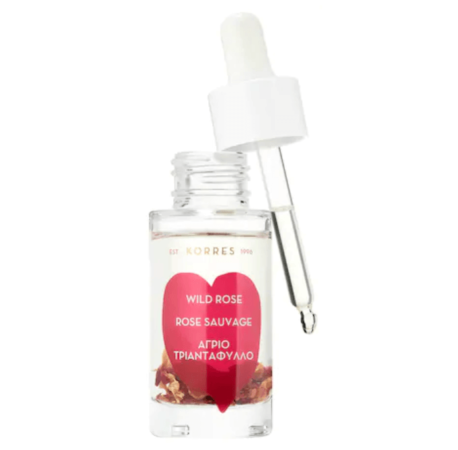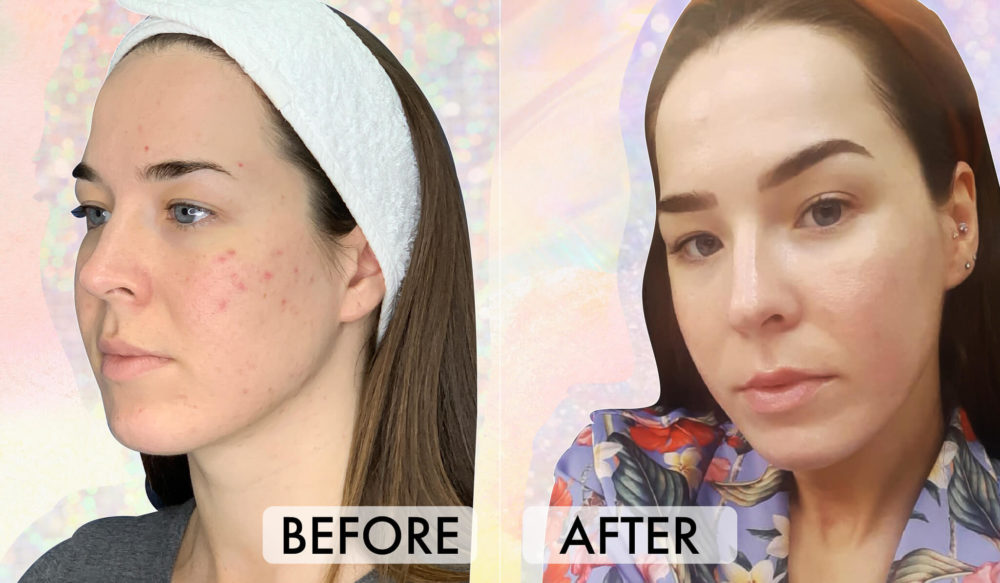Dull Skin & Texture? Vitamin C Will Fix Your Skin
 Source: Daxiao Productions/ Shutterstock
Source: Daxiao Productions/ Shutterstock
The sun and environmental pollutants are unapologetically savage when it comes to your delicate skin. Long story short: they make skin cells freak out, which leads to fine lines, wrinkles, sun spots, discoloration, rough texture, and zero glow. The horror! If only there were a was a superhero ingredient that fought off damage with the combined strength of Beyonce and Gaston… But wait – there is!
Vitamin C: The Antioxidant with Superhero Powers
“Vitamin C is an essential part of skin health,” says Camellia Zheng, the lead medical aesthetician at NYC’s Tribeca MedSpa. “It is a potent antioxidant that can neutralize free radicals caused by environmental stressors, limits the damage caused by ultraviolet light exposure, and has been shown to help repair skin cells.”
It’s not considered a replacement for sunscreen, so it’s not like you can wander out into the blazing sun and not expect to burn while wearing it. Rather, the antioxidant activity protects against UV-induced damage caused by free radicals.
Different Types of Vitamin C in Skincare

If you’ve ever read through product ingredient lists, you may have noticed that vitamin C goes by a lot of different names. The below is def not an exhaustive list – that’d take us longer to get through than a GOT episode – but it’s a short outline of the most popular versions we see in skincare:
- Ascorbic acid: This is a natural form of vitamin C, but it’s also the least stable in skincare formulation, notes Zheng. By least stable, we mean that it loses its potency more quickly (especially when exposed to the air or light) and therefore doesn’t do its job as well.
- L-Ascorbic acid: This is a more stable, water-soluble form of vitamin C. Zheng tells us it’s currently the most scientifically studied form and is considered the gold standard in products.
- Ascorbyl Palmitate (AP): This one’s a vitamin C ester, which means it’s fat soluble as opposed to the water-soluble ascorbic acid. It’s considered less effective than L-ascorbic acid.
- Tetrahexyldecyl Ascorbate (THD): This one is one of the newest members of the vitamin C family, says Zheng. It’s a highly stable, oil-soluble form of vitamin C that’s also considered very effective.
- Ascorbyl Tetraisopalmitate: This is another oil-soluble derivative of vitamin C. It’s considered one of the most stable forms, but isn’t quite as potent as L-Ascorbic.
Posts You'll Love:
When and How to Apply Vitamin C Products
Because vitamin C protects your skin from the damage caused by UV rays and environmental pollutants, it’s best to slather it on in the morning. It should go on just before sunscreen and makeup erry single day. (Bonus: it increases the efficacy of your SPF, too.)
Vitamin C Products to Try
As for choosing the right formulation, it’s a matter of seeking a product that vibes with your skin the best. If you have oily or acne-prone skin, a vitamin C product that doubles down to zap oil or treat blemishes is ideal. If you’re concerned about fine lines, a product that plumps your skin or boosts collagen product is a winner. Start with the below to see if anything speaks to you.

Drunk Elephant C-Firma™ Day Serum, $80, is probably the most hyped vitamin C product RN, and for good reason. It’s made with l-ascorbic acid (AKA the gold standard of vitamin C) along with ferulic acid and vitamin E, which double and triple down on protection and healing.

You can always count on The Ordinary to hit you with an effective, high-quality product for the same price as your Venti whatever. Their Vitamin C Suspension 23% + HA Spheres 2%, $6, combines potent l-ascorbic acid with skin-plumping hyaluronic acid. It subs as an awesome gripping, hydrating primer.

Korres Wild Rose Vitamin C Active Brightening Oil, $54, is legit a bouquet of roses in a bottle. It smells divine, yes, but it’s also a moisturizing savior for dry, thirsty skin and packs the brightening, defensive punch of vitamin C (Ascorbyl Tetraisopalmitate). For protection and glow, apply straight to your skin or add a couple drops to your HG foundation.
If you start using vitamin C more regularly, let us know what your results are like in the comment section below. We see happy, glowy skin in your future!























Leave a comment